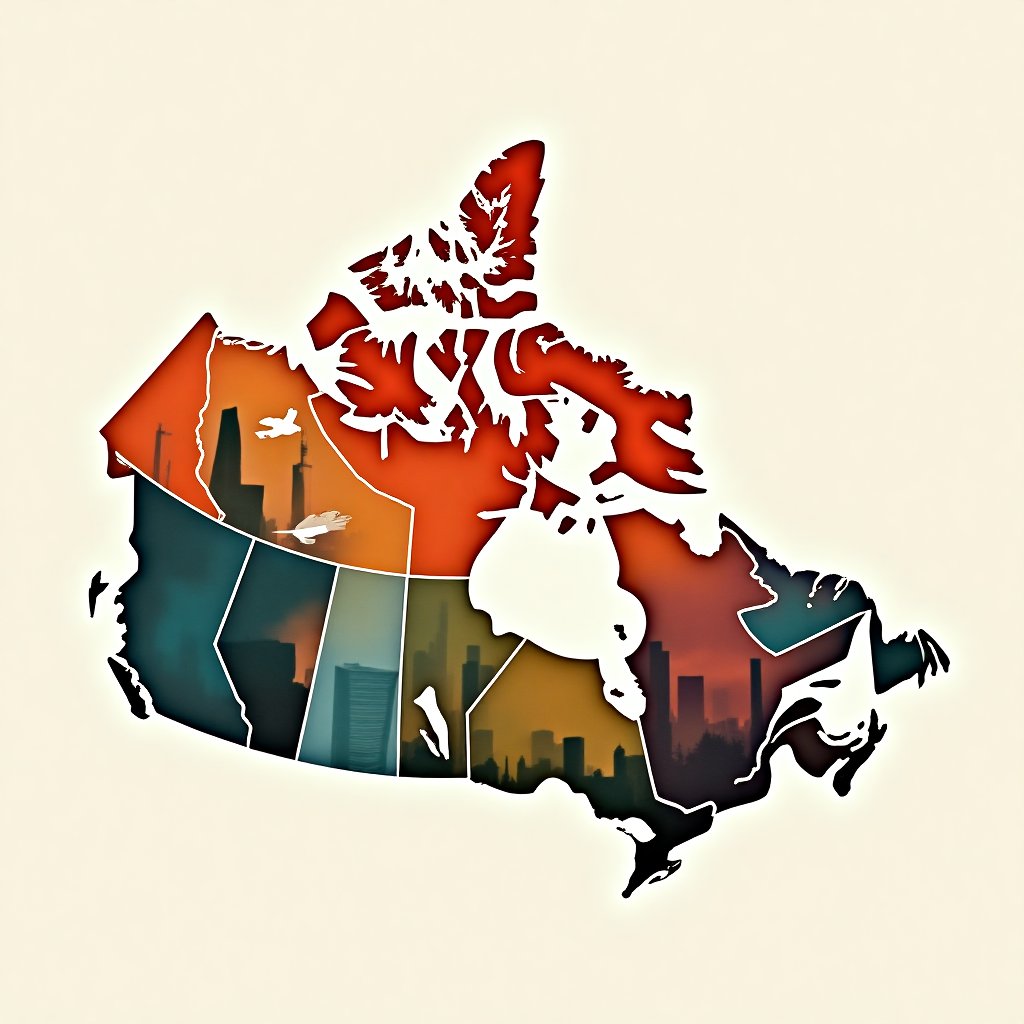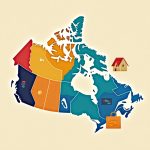What if I told you that a six-figure salary in Canada could still leave you feeling like you’re living paycheck to paycheck? Nearly 10% of Canadians earn $100,000 or more annually, but in a country where the cost of living varies as wildly as the weather, is this golden number truly the ticket to financial freedom? From the bustling streets of Toronto to the serene landscapes of Calgary, the answer isn’t as straightforward as you might think. This article dives into the nuts and bolts of what $100,000 really means in Canada, exploring everything from housing costs to taxes, lifestyle choices, and regional disparities. Whether you’re a young professional dreaming of homeownership or a seasoned worker planning for retirement, this guide will help you assess whether $100,000 is enough to live the life you want.
Renowned economist Armine Yalnizyan, author of "The Big Shift," has long warned about the growing income inequality in Canada. Meanwhile, financial guru David Chilton, best known for "The Wealthy Barber," emphasizes the importance of budgeting regardless of income level. And let’s not forget Jordan Peterson, whose lectures on financial responsibility have sparked debates about what it truly means to be "middle class" in today’s economy. Their insights, combined with real-world data, paint a nuanced picture of what $100,000 can—and can’t—buy in Canada.
So, is $100,000 a good salary in Canada? The answer, as you’ll soon discover, depends on where you live, how you spend, and what you value most. Join us as we unpack the numbers, challenge conventional wisdom, and explore strategies to make every dollar count.
Cost of Living Across Canada
Let’s start with the big-ticket item: housing. If you’re living in Toronto or Vancouver, you’ve likely felt the sting of real estate prices. The average home price in Toronto hovers around $1.1 million, while in Vancouver, it’s even higher at $1.3 million. Even renting isn’t cheap—a one-bedroom apartment in downtown Toronto can set you back $2,200 a month. Compare that to Calgary, where the average home price is a more manageable $500,000, and you start to see how geography plays a massive role in your financial reality.
But housing is just the beginning. Daily expenses like groceries, utilities, and transportation can vary widely depending on where you live. In Halifax, a weekly grocery bill might cost $150, while in Montreal, you could spend closer to $100 for the same items. Public transportation is another area where costs diverge. A monthly transit pass in Ottawa costs $125, but in Vancouver, it’s $103. These seemingly small differences add up over time, impacting how far your $100,000 salary can stretch.
Lifestyle choices also play a significant role. Enjoy dining out? A meal at a mid-range restaurant in Toronto could cost $50 per person, while in Winnipeg, it’s closer to $35. Love to travel? Airfare from Calgary to Los Angeles is often cheaper than from Toronto, thanks to Calgary’s proximity to the US border. And let’s not forget entertainment—tickets to a major concert in Vancouver can cost upwards of $200, while in Regina, you might pay half that.
Urban vs. rural living is another factor to consider. Cities like Toronto and Vancouver offer unparalleled access to amenities, jobs, and cultural experiences, but they come with a hefty price tag. Meanwhile, smaller towns or rural areas may offer lower costs but fewer opportunities. For example, living in Prince Edward Island means cheaper housing and a slower pace of life, but job options in specialized fields may be limited. The key is to weigh these trade-offs carefully and decide what matters most to you.
So, whether you’re a city slicker or a country dweller, the cost of living in Canada is anything but one-size-fits-all. Understanding these differences is the first step to making informed financial decisions and maximizing your $100,000 salary.
Taxation and Take-Home Pay
So you're making $100,000—congrats! But before you start planning that trip to Banff or upgrading to a fancier avocado toast, let’s talk about the Canadian tax system. Spoiler: It’s like a polite but firm moose that takes a big bite out of your paycheck. Here’s the breakdown.
Income Tax Breakdown
Canada’s tax system is progressive, meaning the more you earn, the more you pay. At $100,000, you’re in the third federal tax bracket (26% on income between $53,359–$106,717). But wait—provinces add their own twist. In Ontario, you’ll pay 9.15% on income over $51,446, while Alberta keeps it simple with a flat 10% after $53,360. Quebec? They’re the overachievers with the highest rates (up to 25.75%). Check the CRA’s website for the latest rates, or just stare at your pay stub and weep softly.
Deductions and Credits
Not all hope is lost! RRSP contributions can lower your taxable income—maxing out your $18,000 room saves you ~$5,000 in taxes. Got kids? The Canada Child Benefit is like a monthly hug from the government. And if you’re working from home, claim that $2/day for your "office" (aka your couch). Pro tip: Use TurboTax to sniff out every credit—it’s like a treasure hunt, but with fewer pirates.
Take-Home Pay Calculation
After taxes, a $100,000 salary in Ontario leaves ~$72,000—about $6,000/month. Sounds decent until you remember that downtown Toronto one-bedroom apartments cost $2,500 (and come with a complimentary view of your neighbor’s laundry). Compare that to Calgary, where the same income nets you ~$74,000 thanks to Alberta’s flat tax. Suddenly, cowboy boots seem like a solid investment.
Comparison with Other Countries
Canadians pay more taxes than Americans but less than Brits. For context, $100,000 in New York City leaves ~$71,000 after taxes—similar to Toronto, but with more pizza options. Meanwhile, in London (UK), you’d keep ~£65,000 ($110,000 CAD) but spend half on a shoebox-sized flat. Moral of the story? Taxes are like weather: everyone complains, but nobody moves.
Regional Disparities: Where Does $100,000 Go Further?
Canada’s cost of living is as varied as Tim Hortons’ menu. Let’s play "Budget or Bust" in different cities.
High-Cost Cities (Toronto, Vancouver)
In Toronto, $100,000 feels like middle-class limbo. A $1.1M average home price means you’ll either rent forever or commute from Hamilton (RIP social life). Vancouver? Even seagulls side-eye your salary—the CMHC says you’d need $215,000 to comfortably buy a house. But hey, at least the mountains are free to gaze at.
Affordable Cities (Calgary, Winnipeg)
Calgary’s the MVP here: $100,000 buys you a 3-bedroom house, a Costco membership, and enough leftover for Flames tickets (or therapy after watching the Flames play). Winnipeg’s even cheaper—your salary stretches like taffy, with property taxes so low you’ll wonder if it’s a typo. Downsides? Winter lasts approximately 11 months.
Quality of Life Indicators
Toronto and Vancouver win for jobs and sushi, but Halifax offers ocean views and lower stress. Montreal’s the cultural sweet spot—$100,000 lets you dine out weekly, though you’ll need French lessons to read your hydro bill.
Moving vs. Staying
Relocating isn’t just about money—it’s trading brunch spots for backyard BBQs. If you’re remote, why not try rural life? Picture this: a $300K house, zero traffic, and neighbors who borrow sugar instead of side-eyeing your dog. The catch? Your Uber Eats options are "gas station pizza" or "drive 45 minutes."
Financial Planning on $100,000
So, you’re earning $100,000 a year in Canada. That’s a solid income, but how do you make the most of it? Financial planning is the key to turning that salary into long-term security and freedom. Let’s break it down step by step, from budgeting to retirement planning, so you can take control of your financial future.
Budgeting Tips
First things first: budgeting. A $100,000 salary might sound like a lot, but without a plan, it can disappear faster than you think. Here’s a sample monthly budget to help you stay on track:
- Housing: $2,000 (rent or mortgage)
- Utilities: $200 (electricity, water, internet)
- Groceries: $500
- Transportation: $300 (gas, public transit, or car payments)
- Entertainment: $300 (dining out, movies, hobbies)
- Savings: $1,000 (emergency fund, investments)
- Miscellaneous: $200 (clothing, gifts, etc.)
This leaves you with a buffer for unexpected expenses. Tools like Mint or YNAB can help automate this process and keep you accountable.
Savings and Investments
Building wealth isn’t just about saving—it’s about investing. With $100,000, you have the opportunity to grow your money over time. Start by maxing out your TFSA and RRSP contributions. These accounts offer tax advantages that can supercharge your savings. For example, a TFSA allows your investments to grow tax-free, while an RRSP reduces your taxable income.
Consider diversifying your investments with low-cost index funds or ETFs through platforms like Wealthsimple. Even small, consistent contributions can compound into significant wealth over time.
Debt Management
Debt can be a major roadblock to financial freedom. If you’re carrying student loans, credit card debt, or a mortgage, prioritize paying it down. The snowball method (paying off smaller debts first) or the avalanche method (tackling high-interest debts first) can help you stay focused. Remember, the faster you eliminate debt, the more you can invest in your future.
Retirement Planning
It’s never too early to think about retirement. With $100,000, you can comfortably contribute to your RRSP and TFSA while still enjoying your lifestyle. Aim to save at least 15% of your income for retirement. If your employer offers a pension plan, take full advantage of it. For those who want to go the extra mile, consider consulting a financial advisor to create a personalized retirement plan. Platforms like Wealthsimple offer affordable, AI-driven advice to help you stay on track.
Social and Economic Mobility
Earning $100,000 a year in Canada puts you in a privileged position, but what does that really mean in terms of social and economic mobility? Let’s explore how this income shapes your place in society and what it means for your future.
Middle-Class Status
Is $100,000 enough to be considered middle class in Canada? The answer depends on where you live. In cities like Toronto or Vancouver, where housing costs are sky-high, $100,000 might feel like just scraping by. But in more affordable cities like Calgary or Winnipeg, it can provide a comfortable middle-class lifestyle. According to Statistics Canada, the median household income in 2021 was around $70,000, so $100,000 puts you well above the national average.
Income Inequality
While $100,000 is a strong income, it’s important to recognize the broader context of income inequality in Canada. The top 10% of earners take home nearly 30% of the country’s total income, while the bottom 50% earn just 20%. This disparity is even more pronounced in cities with high living costs. For example, in Vancouver, the gap between the wealthy and the working class is stark. Understanding this dynamic can help you appreciate your position while advocating for policies that promote fairness.
Future Trends
What does the future hold for $100,000 earners in Canada? Rising inflation, housing market volatility, and economic uncertainty could erode the value of this income over time. For instance, the average home price in Toronto has more than doubled in the past decade, far outpacing wage growth. To stay ahead, focus on building multiple income streams, whether through investments, side hustles, or career advancement. Platforms like LinkedIn can help you network and explore new opportunities.
Personal Fulfillment
Finally, let’s talk about happiness. While $100,000 can provide financial comfort, it’s not a guarantee of personal fulfillment. Studies show that beyond a certain income threshold (around $75,000 in North America), additional money has diminishing returns on happiness. What truly matters is how you use your income to create a meaningful life. Whether it’s spending time with family, pursuing hobbies, or giving back to your community, financial security is just one piece of the puzzle.
AI Solutions: How Could AI Help?
Artificial Intelligence (AI) is no longer just a buzzword; it’s a transformative tool that can revolutionize how we manage finances, especially in a country as diverse and dynamic as Canada. With a $100,000 salary, leveraging AI can help you optimize your income, reduce financial stress, and plan for a secure future. Here’s how AI can be your financial ally:
Personalized Financial Planning
AI-powered platforms like Wealthsimple and Mint can create customized budgets tailored to your income, expenses, and regional cost of living. These tools analyze your spending habits, identify areas for savings, and suggest actionable steps to maximize your earnings. For instance, if you’re living in Toronto, where housing costs are high, AI can recommend affordable neighborhoods or suggest downsizing options.
Tax Optimization Algorithms
Taxes can eat up a significant portion of your income, but AI can help you reclaim what’s yours. Platforms like TurboTax use advanced algorithms to identify deductions and credits you might have missed. Whether it’s RRSP contributions, childcare expenses, or medical costs, AI ensures you’re not leaving money on the table. For example, a $100,000 earner in Vancouver could save thousands annually by leveraging these tools.
Predictive Analytics for Future Planning
AI doesn’t just help with current finances; it can also predict future trends. By analyzing data on inflation, housing markets, and economic shifts, AI can forecast how your $100,000 salary will fare in the coming years. For instance, if you’re planning to buy a home in Calgary, AI can predict whether prices will rise or fall, helping you time your purchase perfectly. Tools like Zillow and Realtor.ca are already using AI to provide these insights.
AI-Driven Investment Strategies
Investing is key to building wealth, and AI can make it accessible even for beginners. Robo-advisors like Questrade and Betterment use AI to create personalized investment portfolios based on your risk tolerance and financial goals. For a $100,000 earner, this means growing your wealth without the need for a financial advisor. AI can also rebalance your portfolio automatically, ensuring you stay on track even during market fluctuations.
AI for Debt Management
Debt can be a significant burden, but AI can help you manage it effectively. Platforms like Credit Karma use AI to analyze your debt and suggest repayment strategies. Whether it’s student loans, credit card debt, or a mortgage, AI can create a plan to pay it off faster while minimizing interest costs. For example, a $100,000 earner in Montreal could use AI to prioritize high-interest debt and save thousands in the long run.
AI and Retirement Planning
Planning for retirement is crucial, and AI can make it easier. Tools like Wealthsimple Retirement use AI to calculate how much you need to save and suggest strategies to reach your goals. For a $100,000 earner, this means ensuring a comfortable retirement without sacrificing your current lifestyle. AI can also predict how changes in the economy or your personal circumstances might impact your retirement plans, allowing you to adjust accordingly.
AI for Lifestyle Optimization
AI isn’t just about numbers; it can also enhance your quality of life. Apps like Yelp and OpenTable use AI to recommend restaurants, activities, and experiences that fit your budget. For a $100,000 earner, this means enjoying life without overspending. AI can also suggest affordable travel options, helping you explore Canada or beyond without breaking the bank.
AI and Financial Literacy
Finally, AI can help you become more financially literate. Platforms like Khan Academy and Coursera offer free courses on personal finance, investing, and economics. For a $100,000 earner, this means gaining the knowledge to make informed decisions and take control of your financial future.
Action Schedule/Roadmap
Here’s a detailed roadmap to leverage AI for financial success on a $100,000 salary in Canada:
- Day 1: Sign up for AI-powered financial platforms like Wealthsimple and Mint to assess your current financial situation.
- Week 1: Use AI tools to create a detailed monthly budget, factoring in housing, utilities, and discretionary spending.
- Month 1: Open RRSP and TFSA accounts and set up automated contributions using robo-advisors like Questrade.
- Month 2: Use AI-powered tax software like TurboTax to identify and apply for tax deductions and credits.
- Year 1: Leverage predictive analytics tools like Zillow to plan for major expenses such as buying a home or starting a family.
- Year 1.5: Reassess your financial goals and adjust your investment and savings strategies using AI-driven insights.
- Year 2: Achieve financial stability with optimized spending, saving, and investing habits, all guided by AI.
Your Financial Future Starts Today
So, is $100,000 a good salary in Canada? The answer depends on how you manage it. With the right tools and strategies, this income can provide financial security, comfort, and even the freedom to pursue your dreams. AI is not just a luxury for the wealthy; it’s a practical solution for anyone looking to make the most of their earnings. From personalized budgeting to predictive analytics, AI can help you navigate the complexities of modern finance with ease.
But the journey doesn’t end here. Financial success is about more than just numbers; it’s about making informed decisions, staying adaptable, and continuously learning. Whether you’re in Toronto, Vancouver, or Calgary, the tools and insights shared in this article can help you take control of your financial future. So, what’s stopping you? Start today, and let AI guide you toward a brighter tomorrow.
What steps will you take to optimize your $100,000 salary? How can AI help you achieve your financial goals? Share your thoughts in the comments below, and don’t forget to subscribe to our newsletter for more tips and insights. Become a permanent resident of iNthacity: the "Shining City on the Web", and join the conversation today!
Frequently Asked Questions (FAQ)
1. Is $100,000 enough to buy a house in Toronto?
Not easily. The average home price in Toronto is over $1 million, making it tough even on a $100K salary. You'd likely need:
- A hefty down payment (20% or more)
- Minimal other debts
- Strict budgeting for mortgage payments
Check out the Canada Mortgage and Housing Corporation for affordability tools.
2. How does $100,000 compare to the median income in Canada?
It's nearly double! The median after-tax income for Canadian families is about $57,000 according to Statistics Canada. But remember:
| Income Level | Percentage of Canadians |
|---|---|
| Under $50,000 | 42% |
| $50,000-$100,000 | 38% |
| Over $100,000 | 20% |
3. What are the best cities to live in Canada with a $100,000 salary?
You'll get more bang for your buck in:
- Calgary - Lower taxes, affordable housing
- Halifax - Coastal living with reasonable costs
- Montreal - European charm, lower rents
But job opportunities vary - research first!
4. Can I retire comfortably on $100,000 a year?
It depends on:
- Your retirement age
- Existing savings
- Lifestyle expectations
Financial advisors at firms like Wealthsimple suggest saving 15-20% of income annually for retirement.
5. How much tax will I pay on $100,000 in Ontario?
Roughly $27,000-$30,000 depending on deductions. Use the CRA tax calculator for precise numbers. Key deductions include:
- RRSP contributions
- Childcare expenses
- Medical expenses
6. Is $100,000 considered rich in Canada?
Not exactly "rich" but comfortable. You're in the top 20% of earners, but:
- In Vancouver, it feels middle-class
- In rural areas, it goes much further
The OECD defines middle class as 75%-200% of median income.
7. What percentage of Canadians make over $100,000?
About 10-12% according to recent StatsCan reports. The breakdown:
- 7% of women
- 15% of men
- Higher concentrations in finance, tech, and healthcare
8. How can I make my $100,000 salary go further?
Smart strategies:
- Maximize tax-advantaged accounts (RRSP, TFSA)
- Consider online banks for better interest rates
- Use apps like Mint for budgeting
- Explore side hustles (consulting, rentals)
9. What's the biggest financial mistake people make at this income level?
"Lifestyle creep" - spending more just because you earn more. Common traps:
- Oversized mortgages
- Leasing luxury cars
- Frequent dining out
The Financial Consumer Agency of Canada offers free budgeting help.
10. How does $100,000 compare to similar salaries in the US?
It's complicated! While $100K CAD ≈ $75K USD, remember:
- US healthcare costs can be much higher
- Some states have lower taxes than Canadian provinces
- Big cities like New York or San Francisco are even more expensive than Toronto
Wait! There's more...check out our gripping short story that continues the journey: The Reckoning of Leo Tanner
Disclaimer: This article may contain affiliate links. If you click on these links and make a purchase, we may receive a commission at no additional cost to you. Our recommendations and reviews are always independent and objective, aiming to provide you with the best information and resources.
Get Exclusive Stories, Photos, Art & Offers - Subscribe Today!





























Post Comment
You must be logged in to post a comment.